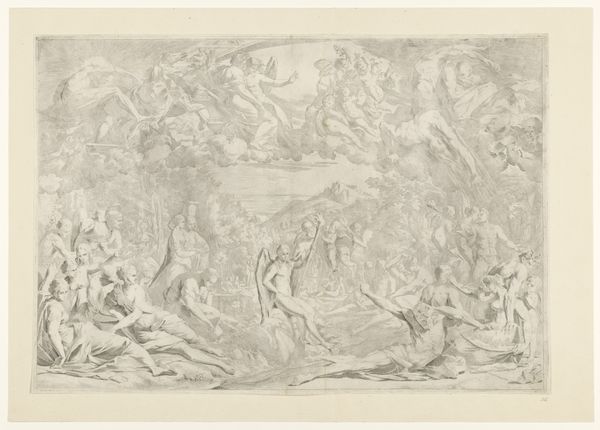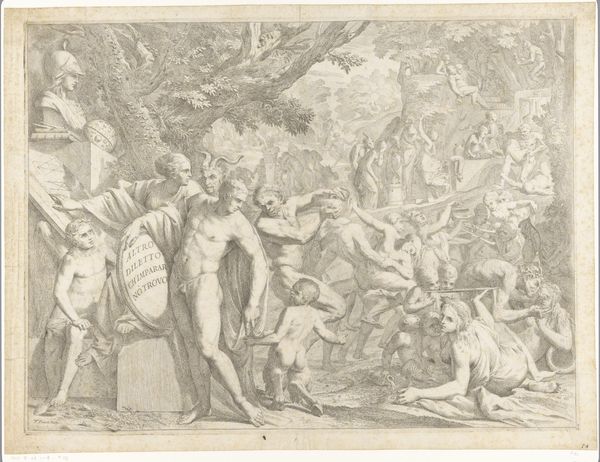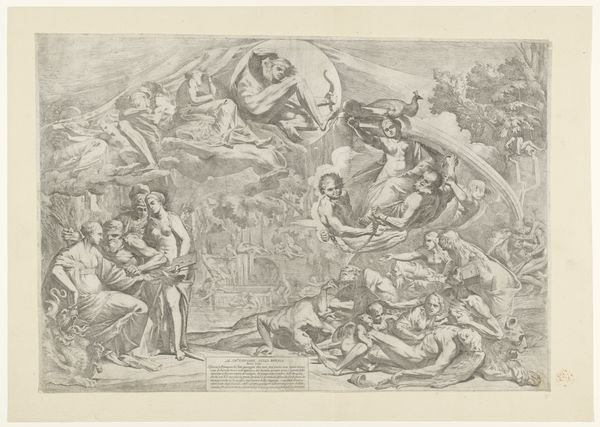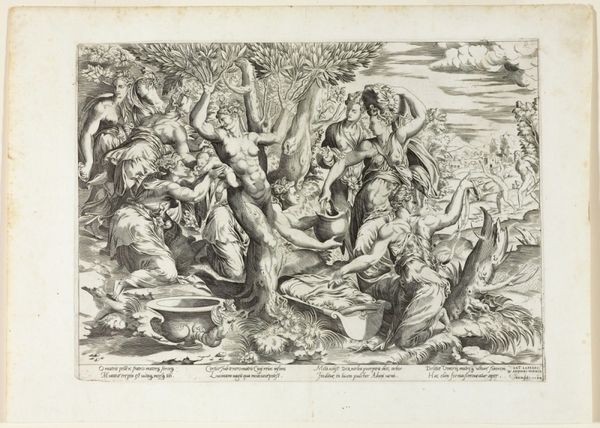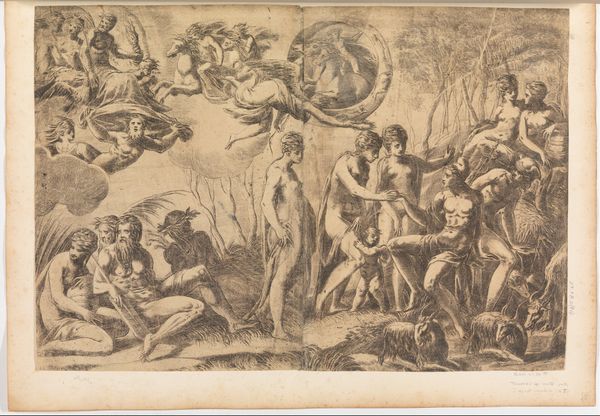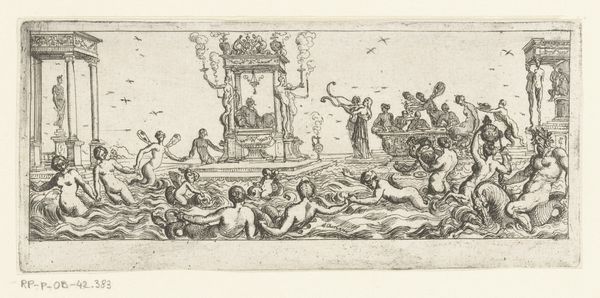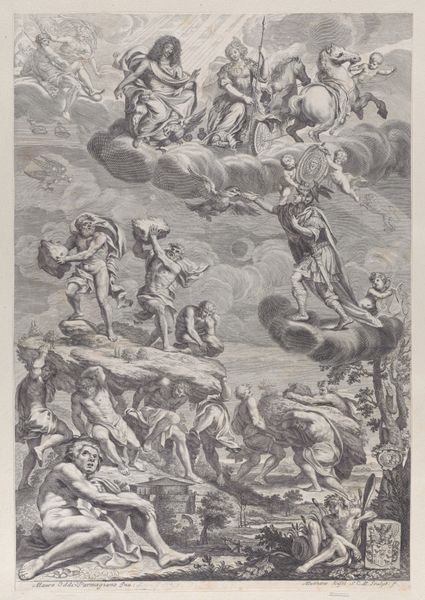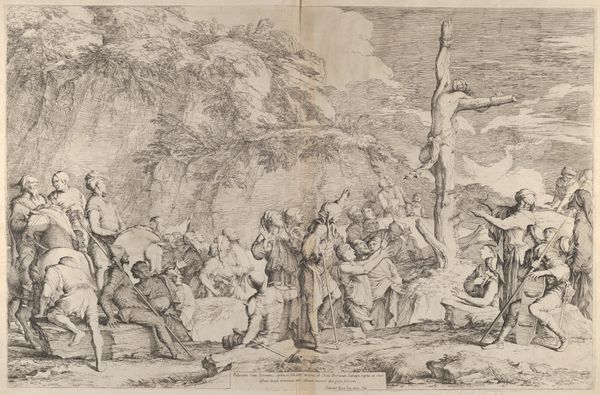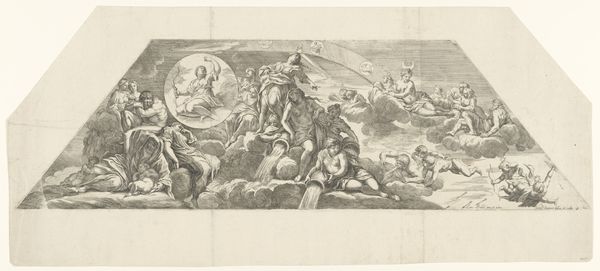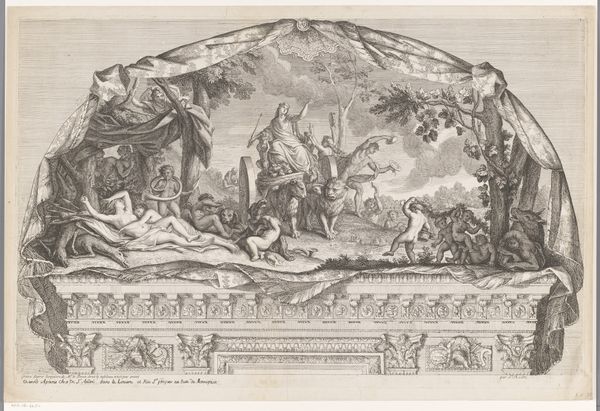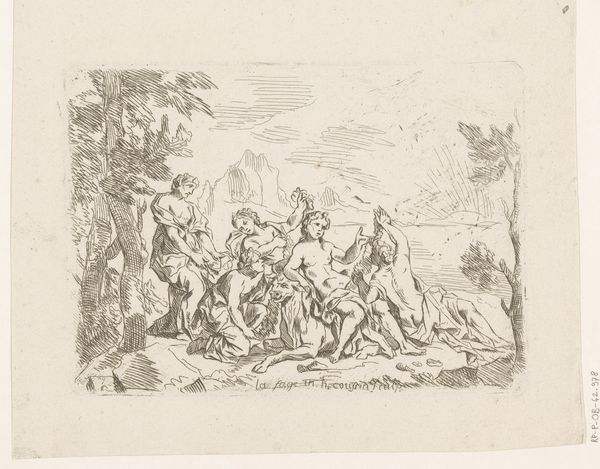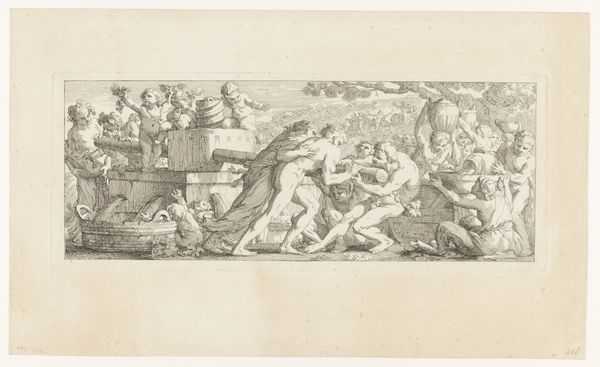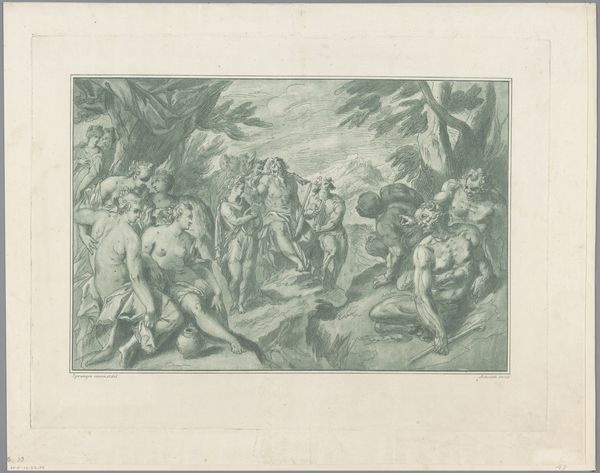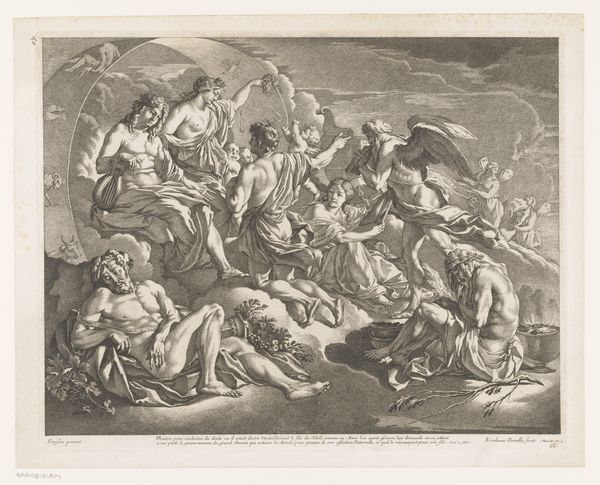
drawing, ink, engraving
#
drawing
#
allegory
#
baroque
#
pen drawing
#
landscape
#
figuration
#
ink
#
history-painting
#
engraving
Dimensions: height 500 mm, width 717 mm
Copyright: Rijks Museum: Open Domain
Pietro Testa made this print, *Allegory of Spring*, in the mid-17th century. The seemingly free-flowing lines are actually the result of a painstaking process: etching. In this technique, a metal plate is coated with wax, then the artist scratches an image into the wax, exposing the metal. The plate is then bathed in acid, which bites into the exposed lines. Finally, the plate is inked and printed, transferring the image to paper. Look closely and you can see the dense network of lines that create the image. The texture and tone of the print, its shades of light and dark, all depend on the depth and density of those etched lines. It was a laborious method, yet allowed for detailed compositions and the reproduction of images for wider distribution. Prints like these played a crucial role in disseminating artistic ideas, connecting workshops, studios, and markets across Europe. So while the subject is spring, the real story is about labor, skill, and the rise of a visual economy.
Comments
No comments
Be the first to comment and join the conversation on the ultimate creative platform.
